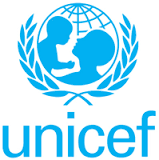Overview
UNICEF works in some of the world’s toughest places, to reach the world’s most disadvantaged children. To save their lives. To defend their rights. To help them fulfill their potential.
Across 190 countries and territories, we work for every child, everywhere, every day, to build a better world for everyone.
And we never give up.
If you are a committed, creative professional and are passionate about making a lasting difference for children, the world's leading children's rights organization would like to hear from you.
For every child, [Health]
Background:
Tanzania has been repeatedly affected by cholera epidemics with considerable impact on health, economy and social development. Zanzibar is one of the areas that has experienced repeated outbreaks since 1978 - recording over 17 outbreaks with about 14,364 total cholera cases and 210 deaths. The last outbreak within the archipelago between September 2015 and July 2016 recorded a total of 4,330 cases and 68 deaths with a Case Fatality Rate of 1.6%.
Among the reasons contributing to this outbreak include, a growing number of urban slums/squatters with insufficient access to safe water, combined with substandard sanitation facilities and unhygienic behaviour practices. Furthermore, limited knowledge among children, individuals, families and communities about waterborne diseases have impaired prevention and control efforts.
Understanding these challenges, the Government of Zanzibar has embarked on the implementation of a 10-year elimination plan, known as the Zanzibar Comprehensive Cholera Elimination Plan (ZACCEP) 2018-2027 - to coherently bring together all interventions that contribute to improving the overall water, sanitation and hygiene situation in Zanzibar.
Among these interventions, includes the implementation of evidence-based Social Behaviour Change Communication (SBCC) that aims to improve hygiene and sanitation practices among children and their families for cholera prevention, response and sustainable resilience among communities.
It will be the primary role of the C4D Officer to support planning, implementation, coordination, monitoring and reporting of SBCC and Advocacy implementation for Zanzibar Comprehensive Cholera Elimination Plan (ZACCEP) in Zanzibar.
The C4D officer will provide technical support and supervision in development, pretesting and validation of key messages, development of communication materials for different groups as suggested in the strategy. Among others, these messages and materials will be for use in mass media (Print, Radio & TV, outdoor and social media), IEC and job aids for interpersonal communication, community engagement through influencers, edutainment packages for schools and training materials.
The C4D officer will further ensure selected teams of key implementing partners including Key Ministries, Community Health Volunteers (CHVs), networks and key mobilizers are trained for effective rollout of the strategy and how to use developed materials and guides.
The C4D officer will ensure effective coordination between government key ministries and SBCC partners through a well-established SBCC TWG of partners. Through this the C4D officer will ensure presentation of key advocacy agenda for effective SBCC for cholera elimination in Zanzibar.
Main duties/responsibilities:
- SBCC program design through an in-depth social and behavioral assessment
Provide technical support and supervision in designing SBCC program for cholera elimination in Zanzibar by undertaking an in-depth assessment to understand behavioral and social cultural issues contributing to cholera and inform baseline on levels of knowledge attitude and practice related to hygiene and sanitation
- C4D strategy development
Provide technical support and supervision in developing a comprehensive SBCC strategy that will provide a framework for designing and implementing interventions aimed at promoting behavioral change among families and communities in Zanzibar. The strategy will provide a clear link between SBCC objectives and how it will contribute in achieving the overall ZACCEP goal with strategic program approaches (mix of tools, channels, vehicles, and media which will convey and mutually reinforce messages).
- Designing of messages and materials
Provide technical support and supervision in developing, pre-testing, validating and effective dissemination of communication materials including IEC, Edutainment packages, training manuals, job aids/guides for mobilizers and key influencers and Mass media packages
- Coordination and planning of strategic C4D
- Support establishment of SBCC working group, develop terms of reference for the working group to strengthen coordination in the implementation of SBCC and advocacy purposes.
- Provide ongoing coordination and technical leadership of SBCC working group in collaboration with Key Ministries in Zanzibar and key partners to ensure effective implementation of SBCC and advocacy initiates for ZACCEP implementation.
- Strengthen Risk Communication and Community Engagement (RCCE) for cholera preparedness and response in the Zanzibar and ensure full participation in coordination forums, document and follow up on tasks related to C4D.
- Capacity building
In collaboration with Key Ministries and expected team of consultancy
- Develop and finalize training packages for key implementing partners and conduct TOT for effective rollout and implementation of SBCC strategy.
- Train Community Health Volunteers (CHVs), networks and key mobilizers on cholera prevention and control
- Support planning and implementation of strategic C4D with government counterparts and PCA partners in consultation with key stakeholders and the local government.
- Support development of multi-sectoral multi-media C4D materials as needed for Cholera preparedness and response.
- Facilitate prepositioning and distribution and utilization of multimedia materials.
- In collaboration of with government key Ministries and IPs in the SBCC ensure mainstreaming of Accountability to Affected Population(AAP) in all element of implementation of ZACCEP in Zanzibar.
- Public advocacy and strengthen partnerships for cholera prevention and control.
- Conduct Mapping of key influencers and existing platforms in Zanzibar to strengthening partnerships with influencer groups including religious leaders, village chiefs, community and youth leaders, private sector, media, journalists, legislators, social media actors
- Develop knowledge products targeted to each influencer groups for effective partnership
- Documentation, Knowledge Management and information sharing
- Systematically analyze, document, and disseminate results, lessons learned and best practices from ZACCEP implementation for policy dialogue and replication in Tanzania mainland at both central and decentralized levels. Through the compilation and dissemination of assessment reports, policy briefs and documentation of innovations and good practices, UNICEF will proactively engage in evidence-based policy advocacy that lead to strategic decisions in the best interest of women and children.
- Ensure the evidenced-based knowledge and best practices form Zanzibar cholera elimination are shared and disseminated throughout UNICEF platforms including website for cross learning between countries and regions.
- C4D implementation, monitoring and evaluation
- Using the designed SBCC M&E framework ensure C4D indicators are well monitored and measured for evidence-based re-programming
- Monitoring and following up DCTs, and undertaking other functions including contributing to the development of SBCC related PCAs, capacity building of government and NGO partners, providing inputs for key reports e.g. donor reports, SitReps, annual reports, and other responsibilities that the manager may provide.
REQUIRED QUALIFICATIONS & COMPETENCIES :
Competencies and level of proficiency required
Core Values
- Commitment
- Diversity and inclusion
- Integrity
Core competencies
- Communication
- Working with people
- Drive for results
Functional Competencies:
- Formulating Strategies and Concepts [ II]
- Analyzing [ III]
- Relating and Networking [ II]
- Deciding and Initiating Action [ II]
- Applying Technical Expertise [ III]
Education:
- Advanced degrees in communication and/or social/behavioral sciences.
Experience:
- At least 8-10 years of experience in SBCC / C4D at senior level with extensive experience in SBCC program design, supervision and training both at national and international contexts.
- Demonstrated sectoral SBCC expertise/experience including in health, nutrition, Water, Hygiene and Sanitation and education
- Experience in participatory training methodologies.
- Experience working in SBCC in emergency context will be an added value
- Experience in developing and customizing SBCC training packages for specific programmes
- Familiarity or previous experience SBCC implementation for UN agencies will be an asset
Language Requirements:
- Fluency in English and Swahili language is required. Knowledge of another official UN language is an asset.
UNICEF is committed to diversity and inclusion within its workforce, and encourages all candidates, irrespective of gender, nationality, religious and ethnic backgrounds, including persons living with disabilities, to apply to become a part of the organization.
UNICEF has a zero-tolerance policy on conduct that is incompatible with the aims and objectives of the United Nations and UNICEF, including sexual exploitation and abuse, sexual harassment, abuse of authority and discrimination. UNICEF also adheres to strict child safeguarding principles. All selected candidates will, therefore, undergo rigorous reference and background checks, and will be expected to adhere to these standards and principles.

